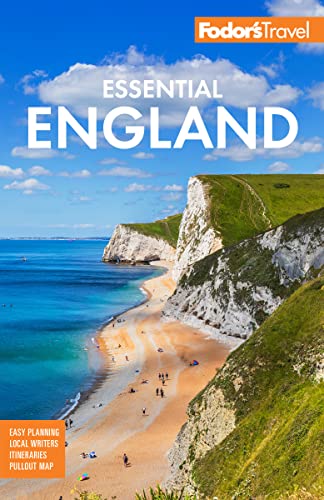Train
Operated by several different private companies, the train system in Britain is extensive and useful, though often confusing and less than reliable (some privately run lines have recently been taken back into state ownership to salvage performance). Some regional train services use older cars, and virtually all lines suffer from occasional delays, schedule changes, and periodic repair work that runs over schedule. The pricing structure is complex, and prices tend to be high compared to the rest of Europe. Nevertheless, all major cities and many small towns are served by trains, and, despite the difficulties, rail travel is the most pleasant way to cover long distances.
On long-distance runs, some rail lines offer buffet cars while others provide mobile snack carts that pass through all the cars. Most train companies also now have "quiet cars" where mobile phone use is forbidden (in theory if not always in practice).
Classes
Most rail lines have first-class and second-class cars. In virtually all cases, second class is perfectly comfortable. First class is quieter and less crowded, has better furnishings, and marginally larger seats. It also usually costs two to three times the price of second class, but not always, so it’s worth comparing prices. Most train operators offer a Weekend First ticket. Available on weekends and holidays, these tickets allow you to upgrade for as little as £10. Some train lines only let you buy Weekend First tickets on board.
Fares and Schedules
National Rail Enquiries is a helpful, comprehensive, and free service that covers all the country's rail lines. National Rail will help you choose the best train, and then connect you with the right ticket office. You can also book tickets online. A similar service is offered by the Trainline, which provides online train information and ticket booking for all rail services. The Man in Seat 61, a website, offers objective information along with booking facilities.
Ticket prices are more expensive during rush hour, so plan accordingly. For long-distance travel, tickets cost more the longer you wait. Book in advance and tickets can be half of what you'd pay on the day of departure.
Ask the local tourist board about hotel and local transportation packages that include tickets to major events.
Passes
National Rail Enquiries has information about rail passes such as All Line Rovers, which offers unlimited travel on National Rail services for a week, with some restrictions, for £540. Children, seniors, and disabled Rovers are one-half to one-third less.
If you plan to travel a lot by train in England, consider purchasing a BritRail Pass, which gives unlimited travel over the entire British rail network and can save you money. If you don't plan to cover many miles, you may come out ahead by buying individual tickets. Buy your BritRail Pass before you leave home, as they are not sold in Britain. The passes are available from most U.S. travel agents or from ACP Rail International, Flight Centre, International Rail, RailEurope, Trainline, or VisitBritain. Note that Eurail Passes aren’t honored in Britain.
BritRail passes come in two basic varieties: the Consecutive Pass and the England FlexiPass. You can get a Consecutive Pass good for 3, 4, 8, 15, or 22 consecutive days or one month starting at $164 standard and $247 first class for 3 days. The FlexiPass for 3, 4, or 8 days of travel in one month or 15 days in two months costs from $207 standard and $306 first class for 3 days. If you’re based in London, the BritRail London Plus pass offers access to southern England destinations such as Oxford, Cambridge, Bath, or Stratford-upon-Avon from $159 for standard class, $223 for first class. Tickets can be used for 3, 4, or 8 days of travel within one month.
Don't assume that a rail pass guarantees you a seat on a particular train. You need to book seats even if you’re using a rail pass, especially on trains that may be crowded, particularly in summer on popular routes.
Reservations
Reserving your ticket in advance is recommended. Even a reservation 24 hours in advance can provide a substantial discount. Look into cheap day returns if you plan to travel a round-trip in one day.
Channel Tunnel
Short of flying, taking the Eurostar through the Channel Tunnel is the fastest way to cross the English Channel (and perhaps faster after factoring in airport travel time and security). Travel time is 2½ hours from London's St. Pancras Station to Paris's Gare du Nord. Trains also travel to Brussels (2 hours), Lille (1½ hours), and Disneyland Paris (2¾ hours), and to Lyon (5¾ hours), Avignon (6½ hours), and Marseille (7¼ hours), Friday, Saturday, and Monday from May through mid-September (plus Sunday in July and August). On Friday (night train) and Saturday (day train) from late December through March, ski trains go to Moûtiers (9 hours) and four other nearby Alpine ski resorts.
Early risers can easily take a day trip to Paris if time is short. Book ahead, as Eurostar ticket prices increase as the departure date approaches. If purchased in advance, round-trip tickets to Paris start at £58 Monday through Thursday, £78 Friday through Sunday. The SnapEurostar site has last-minute tickets from £25 one way, but although you can specify the general time of day, the exact time of departure is potluck.




